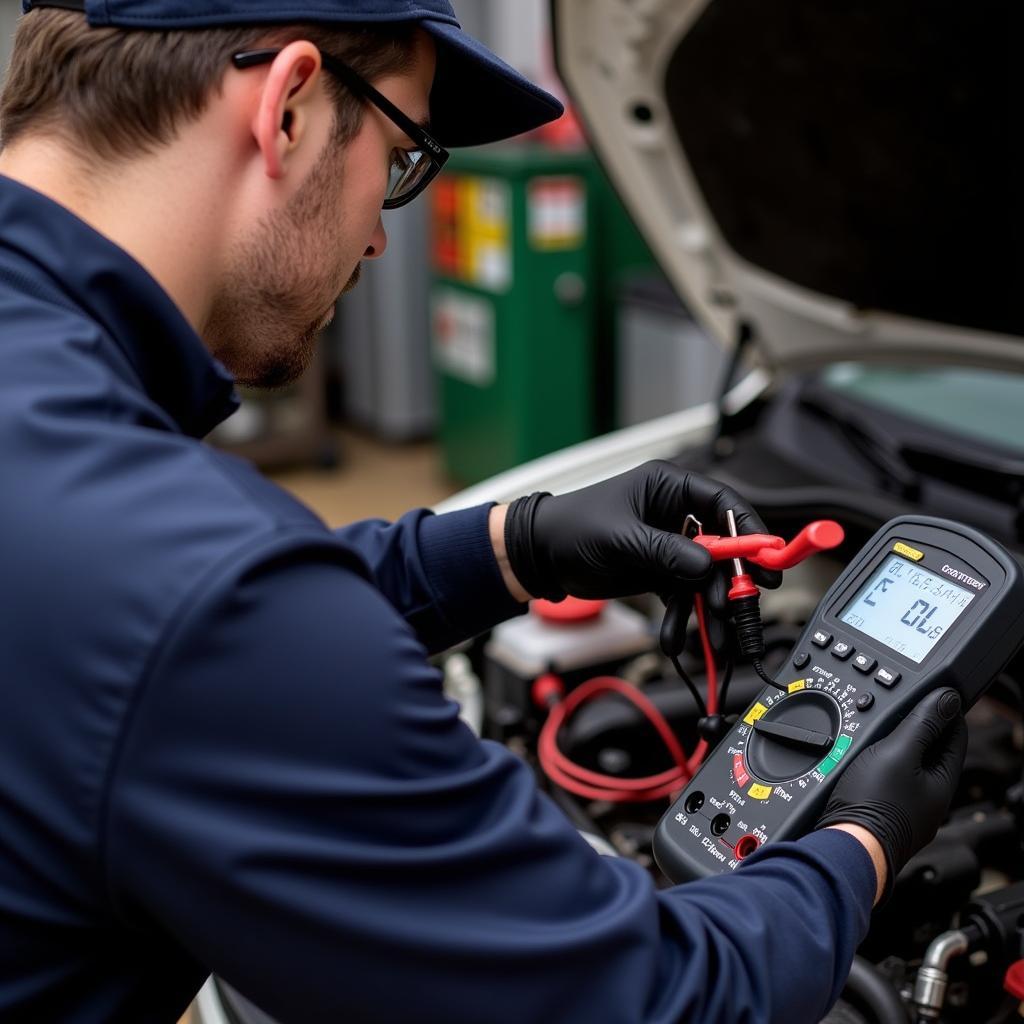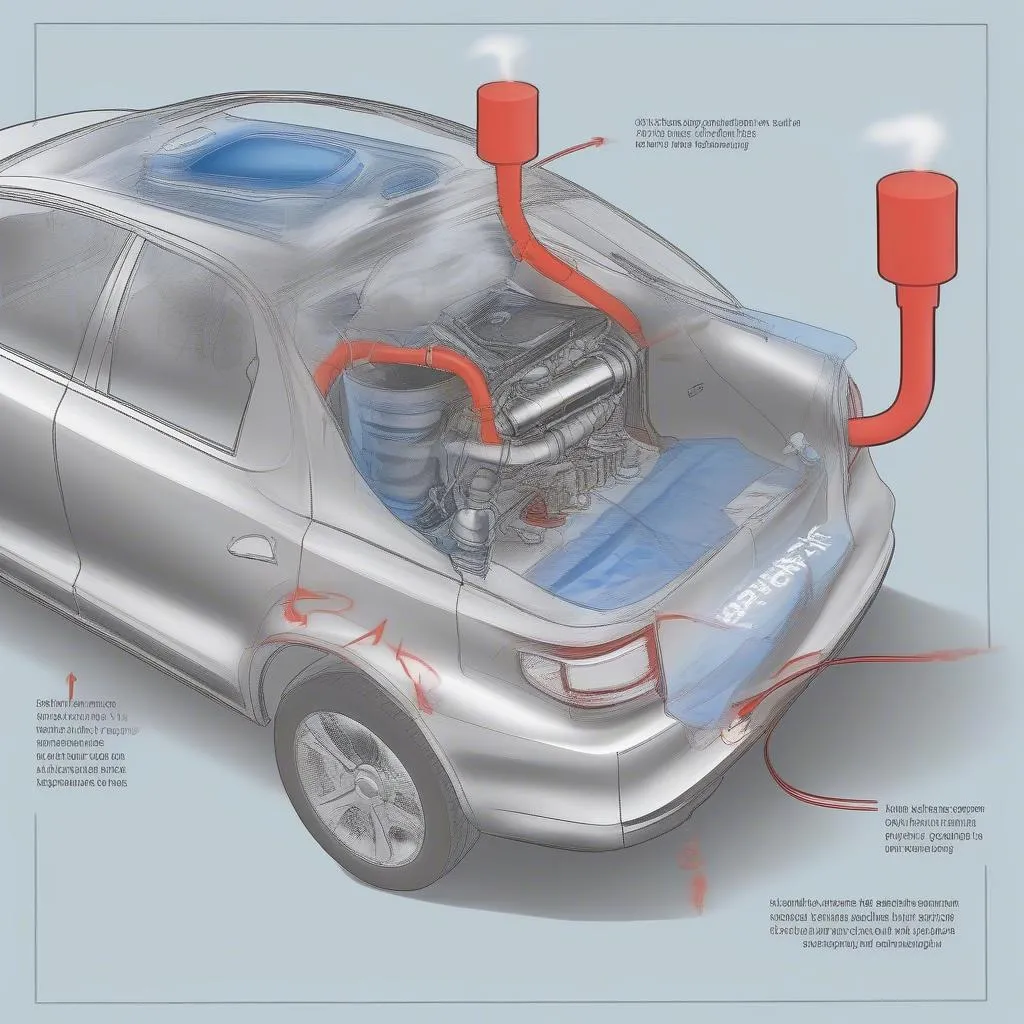Is your car battery constantly giving you trouble? “My battery keeps dying” is a frustrating search query, but you’re not alone. This guide dives into the common causes of a perpetually draining car battery and offers practical solutions to get you back on the road.
Why Does My Car Battery Keep Dying?
There are several reasons why your car battery might be draining repeatedly. Understanding the underlying cause is crucial for finding the right fix. Some issues are simple DIY fixes, while others require the expertise of a qualified technician.
Common Culprits Behind a Dying Battery
- Parasitic Drain: Even when your car is off, certain components continue to draw power, like the clock, radio memory, and security system. A faulty component or wiring issue can lead to excessive drain, leaving you with a dead battery.
- Failing Alternator: The alternator recharges the battery while the engine is running. If it’s malfunctioning, your battery won’t receive the necessary charge, eventually leading to failure.
- Old Battery: Car batteries have a limited lifespan, typically 3-5 years. As a battery ages, its ability to hold a charge diminishes.
- Extreme Temperatures: Both extreme heat and cold can stress a car battery, shortening its life and impacting its performance.
- Loose or Corroded Battery Terminals: A poor connection at the battery terminals can prevent the alternator from properly charging the battery.
- Leaving Lights On: Accidentally leaving interior or exterior lights on is a classic way to drain your battery.
How to Diagnose a Dying Car Battery
Before you start throwing parts at the problem, it’s essential to properly diagnose the cause. Here’s a step-by-step guide:
- Check the Battery Terminals: Inspect the terminals for corrosion or looseness. Clean them with a wire brush and baking soda solution if necessary.
- Test the Battery Voltage: Use a multimeter to check the battery’s voltage. A healthy battery should read around 12.6 volts.
- Test the Alternator: With the engine running, the voltage should be around 14 volts. A lower reading suggests a faulty alternator.
- Check for Parasitic Drain: With the engine off and all accessories turned off, use a multimeter to measure the current draw. A drain of more than 50 milliamps could indicate a parasitic drain.
 Mechanic Testing Car Battery with Multimeter
Mechanic Testing Car Battery with Multimeter
Fixing a Continuously Dying Car Battery
Once you’ve identified the cause, you can take appropriate action:
- Replace a Failing Battery: If your battery is old or failing, replacement is the best solution.
- Repair or Replace the Alternator: A faulty alternator needs to be repaired or replaced to ensure your battery is properly charged.
- Address Parasitic Drain: Identifying and fixing the source of a parasitic drain can be challenging. This may involve checking fuses, relays, and wiring. Sometimes, professional help is necessary.
- Clean or Tighten Battery Terminals: Ensure clean and tight connections at the battery terminals to optimize charging.
“Regular battery maintenance, like cleaning the terminals, can significantly extend its lifespan and prevent unexpected breakdowns,” says John Stevenson, Senior Automotive Electrical Engineer at AutoTech Solutions.
My Battery Keeps Dying Even After Replacing It!
If your battery continues to die even after replacing it, the problem likely lies elsewhere, such as a parasitic drain or a faulty alternator. Don’t delay further diagnosis to prevent further frustration.
“Ignoring a recurring dead battery can lead to more significant problems down the road, potentially damaging other electrical components,” advises Maria Rodriguez, Lead Diagnostic Technician at Advanced Auto Diagnostics.
Conclusion
Dealing with a car battery that keeps dying can be a frustrating experience. However, by understanding the common causes and following the diagnostic steps outlined in this guide, you can pinpoint the issue and implement the appropriate solution. Don’t let a dead battery leave you stranded – take charge and keep your car running smoothly!
FAQ
- How often should I replace my car battery? Most car batteries last 3-5 years.
- Can I jump-start my car every time the battery dies? While jump-starting is a temporary solution, it’s crucial to address the underlying cause of the draining battery.
- What are the signs of a failing alternator? Dim headlights, flickering interior lights, and unusual noises from the engine bay can indicate a failing alternator.
- How can I prevent my car battery from dying? Regular maintenance, like cleaning terminals and ensuring accessories are off when the car is parked, can help prevent battery drain.
- Is it safe to drive with a bad alternator? Driving with a failing alternator can eventually leave you stranded and may damage other electrical components.
- What is a parasitic draw test? A parasitic draw test uses a multimeter to measure the current draw when the car is off, helping identify any abnormal power consumption.
- How much does it cost to replace a car battery? The cost varies depending on the type of battery and your vehicle, but generally ranges from $100 to $300.

